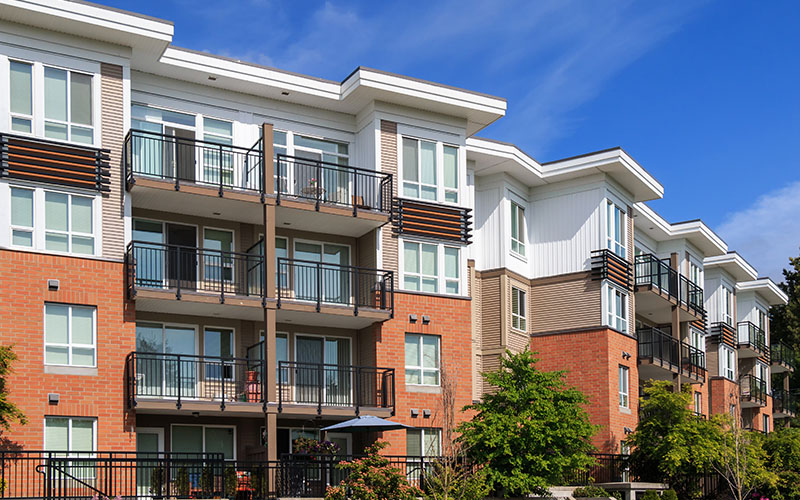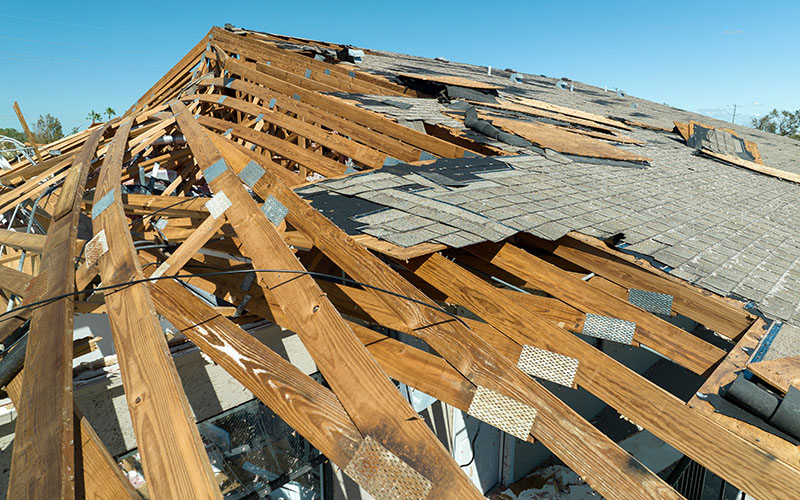Homeowners associations that wish to protect their finances should purchase HOA insurance. This vital coverage ensures the community continues to function smoothly in the event of a disaster or legal issue. Without it, a HOA would have to dip into its reserves, which would set the association back.
What is HOA Insurance?
Homeowners association insurance is a type of insurance policy that protects the shared property and operations of an HOA. It differs from individual homeowner policies because it focuses on the common areas, buildings, and liabilities that the HOA is responsible for managing.
Many states require homeowners association insurance by law. Governing documents also contain similar requirements, ensuring associations are well-protected. The HOA board is responsible for obtaining this policy on behalf of the association.
HOA Insurance vs Condo Association Insurance

Both HOA insurance and COA insurance serve communities, but they have different scopes. The main difference lies in what the association owns and is responsible for maintaining.
In a homeowners association, individual lot owners typically own their homes and the land under them. The HOA maintains shared spaces, such as parks, roads, clubhouses, and pools. The policy normally only covers these areas.
In a condo community, the association owns the building’s exterior and, oftentimes, the entire structure. This includes roofs, hallways, elevators, and plumbing systems. A condo association master insurance policy must cover all these shared structural elements, which often makes it more expensive and comprehensive.
HOA Insurance vs Homeowners Insurance
It is worth noting that HOA insurance coverage is not the same as homeowners insurance. While the HOA policy covers shared property and liability for the common areas, homeowners insurance covers individual homes and personal belongings.
The HOA is responsible for obtaining a master policy for the association and its common areas. On the other hand, individual homeowners must purchase their own personal policies.
COA Insurance vs Condo Insurance (HO6 Insurance Policy)
In condo associations, unit owners often carry an HO6 insurance policy. This is condo insurance, and it differs from the COA master policy.
The condo association master policy covers the building’s structure and common elements, such as roofs, stairwells, and parking garages. The HO6 policy, on the other hand, covers the interior of an individual’s condo unit. This includes walls, floors, personal property, and liability within the unit itself.
Unit owners must check with their COA to understand the type of policy the association has. This will allow them to purchase sufficient coverage that the COA’s insurance doesn’t cover.
What Does HOA Insurance Cover?
Although specific coverage can vary, an HOA master insurance policy typically covers property damage and liability.
- Property Damage. HOA insurance helps cover the cost of damage to shared buildings and common areas that the association maintains. So, if a storm floods the clubhouse or wrecks the pool area, the insurance can step in to cover repair costs.
- Liability. If someone gets hurt on HOA property, like slipping on a wet sidewalk, the insurance can help protect the association. It typically covers legal fees and any settlement or court-awarded damages.
The level of protection the HOA receives depends on the policy. Coverage options can vary depending on the provider, so it’s up to the board to select the appropriate limits and deductibles. In some cases, state laws or the community’s governing documents may set minimum insurance requirements.
How Much Does HOA Insurance Cost?
It is difficult to identify an exact amount when it comes to insurance costs. Several factors can affect the price of an HOA insurance policy. These include:
- The size and value of the community’s shared property;
- Location and local risk factors (such as hurricanes, floods, or fires);
- The amount of liability coverage;
- Past claims history; and,
- The number of units or homes.
Smaller communities with more limited common areas tend to have a lower premium. Meanwhile, larger communities, particularly master-planned associations, may pay higher premiums per year. This is because they usually have more extensive common areas and amenities.
HOAS need to solicit quotes and compare them to find competitive rates. That said, cheapest does not always equal best. Board members should not attempt to cut costs if it will compromise essential coverage.
Other Essential HOA Insurance Policies
Aside from the master insurance policy for homeowners association, here are the other types of insurance an HOA should have.
1. General Property Insurance

Although the master policy already covers property damage, it still helps to have a separate policy for general property insurance. This protects the association’s physical property, covering the cost of repairs or replacement in the event of a covered loss.
2. General Liability Insurance
Again, the master policy already offers coverage from liability, but a more comprehensive policy provides greater protection. If someone slips on a sidewalk, falls by the pool, or gets injured in a common area, this coverage protects the HOA from legal liability. It can pay for medical bills, legal fees, and court-awarded damages.
3. D&O Insurance
Board members make decisions on behalf of the community. Sometimes, those decisions can lead to legal claims. Some homeowners even sue for the heck of it.
Directors & Officers (D&O) insurance protects directors and officers from personal liability. It covers defense costs and any settlements or judgments related to alleged wrongful acts.
4. Fidelity Insurance
Also known as employee dishonesty coverage, this protects the HOA from losses resulting from theft or fraud committed by board members, volunteers, or staff. In Virginia, Section 55.1-1827 of the Virginia Property Owners Association Act requires fidelity bonds for any person handling association funds if the community has more than six lots or collects over $5,000 annually.
5. Workers’ Compensation
If the HOA hires employees or independent contractors, it should carry workers’ compensation insurance. This policy covers medical expenses and lost wages for workers who are injured on the job. Even if the HOA only hires vendors occasionally, it should confirm that those vendors carry their own coverage.
6. Umbrella Policy

An umbrella policy provides an additional layer of protection over general liability and D&O policies. It covers large claims that exceed the base policy limits. This is especially useful for associations with high-value assets or a history of legal disputes.
How to Choose the Best HOA Insurance
Not all policies are made equal. To get the best protection, the board should work with experienced HOA insurance companies that specialize in community associations.
These providers understand the unique risks that HOAs face. They can recommend coverage that complies with state laws and the governing documents.
When comparing HOA insurance companies, the board should:
- Look for companies with a strong reputation and proven HOA experience
- Review the policy limits and exclusions carefully
- Compare premiums and deductible amounts
- Ask for references from other associations
- Ensure the company is responsive and offers good customer service
The board should also review its existing policies annually. This is because the HOA’s needs might change over time, requiring broader coverage.
Financial Protection for HOAs
Homeowners associations should obtain proper HOA insurance. Insurance is critical for protecting the HOA’s finances, directors, and common areas. With the right policy in place, the community can safeguard itself from lawsuits, natural disasters, theft, and injuries.
National Realty Partners is a leading provider of HOA management services in Virginia. We help communities thrive. Call us today at 703-435-3800 or request a proposal online to get started!
RELATED ARTICLES:
- Condo Repair And Maintenance Guide: Who’s Responsible?
- A Step-By-Step Guide To HOA Transition From Developer Control
- HOA Attorney: How Can They Help The Association?
